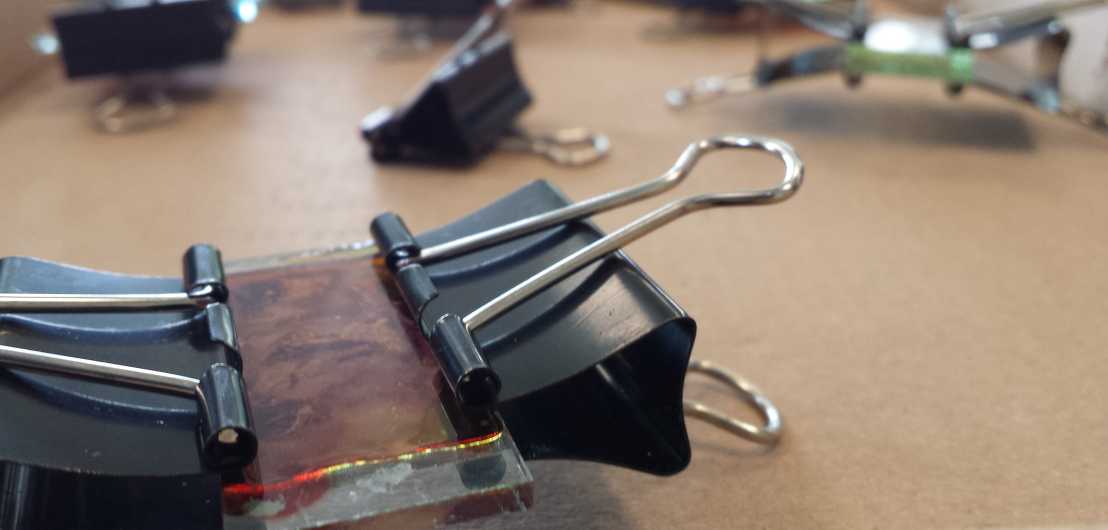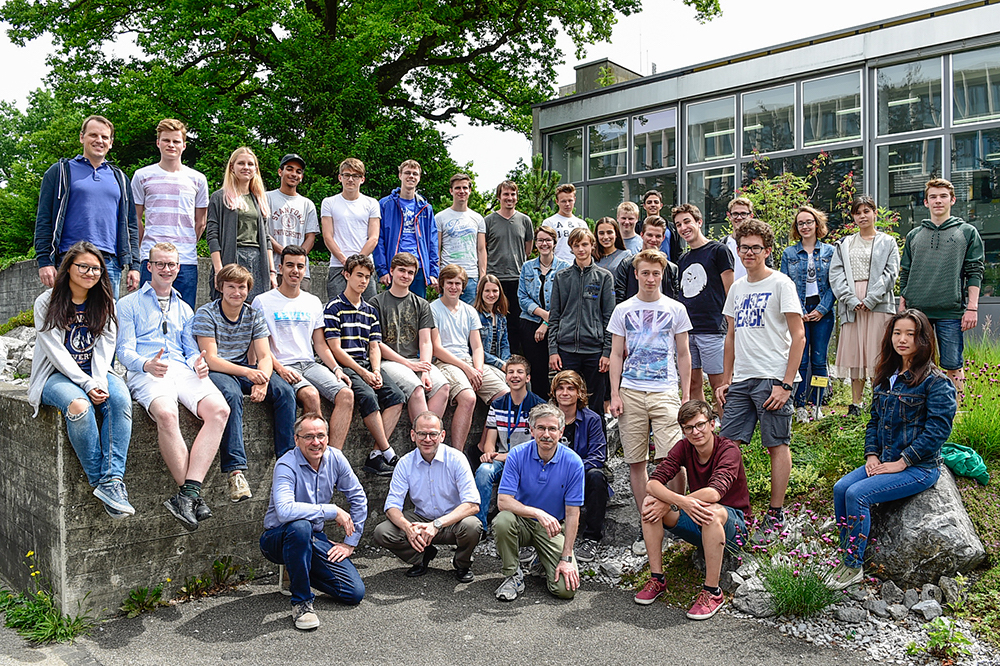Physics without limits
Studying climate change on a computer, building solar cells, looking at material surfaces using novel microscopes, determining the age of samples using the radio-carbon method: Some 30 high-school students explore each year during the ETH study week different topics at the Department of Physics — a great opportunity for establishing contacts to the world of research and for gaining insights into labs and scientific work.
The Study Week is an opportunity for high-school students to gather concrete impressions of a field they might study one day. During the week, the participants work together in groups of similarly minded youngsters, offering plenty of time for networking. At the end of the week, they present their results, at the Auditorium Maximum of ETH Zurich — there's probably no better chance for practising presentations in front of a large audience.

When rehearsing the big event, the teams are coached in how they can present their projects in an accessible manner. Nervousness aside, the enthusiasm of the participants is palpable. For example, the joy over seeing their solar cells made of simple materials actually work. Participants have also compared the efficiency of these cells with commercial products, in a scientifically correct manner.
A second group has collected samples, which they then analysed with the external page Mini Carbon Dating System, a mass spectrometer developed by ETH researchers in the Laboratory of Ion Beam Physics.
Another group explored how images can be produced with different microscopes. They imaged the atomic structures of everyday objects and, in doing so, became acquainted with modern research equipment.
For the participants in the fourth group it was impressive to see how the change in the CO2 content of the atmosphere affects the climate, and how this can be simulated using a complex computer programme. The animation based in these data shows how fast the ice at the South Pole is expected to melt.
With these four diverse topics, the Study Week provides participants with lively insights into the broad research activities at the Department of Physics at ETH Zurich.
Study Week for high-school students
The next Study Week at ETH Zurich will take place from 4 to 8 June 2018. Registration is possible starting from March 2018.
